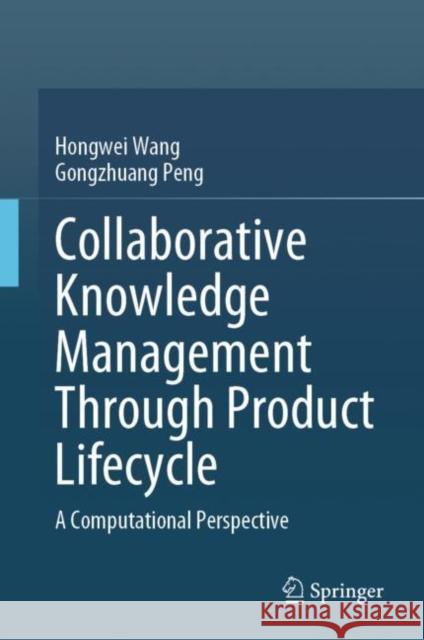Collaborative Knowledge Management Through Product Lifecycle: A Computational Perspective » książka
Collaborative Knowledge Management Through Product Lifecycle: A Computational Perspective
ISBN-13: 9789811996252 / Angielski / Twarda / 2023 / 349 str.
Collaborative Knowledge Management Through Product Lifecycle: A Computational Perspective
ISBN-13: 9789811996252 / Angielski / Twarda / 2023 / 349 str.
(netto: 651,74 VAT: 5%)
Najniższa cena z 30 dni: 655,41
ok. 16-18 dni roboczych.
Darmowa dostawa!
This book not only presents the state-of-the-art research on knowledge modelling, knowledge retrieval and knowledge reuse, but also elaborates the Collaborative Knowledge Management (CKM) paradigm and the architecture for the next generation of knowledge management systems. Although knowledge management has been extensively studied, particularly in the fields of business management and engineering design, there is a lack of systematic methodologies for addressing the integrated and collaborative dimension of knowledge management during the collaborative process of designing and developing complex systems, products, processes and services. The rapid development of information technologies, together with their applications in engineering and management, has laid the foundation for a Collaborative Knowledge Management (CKM) paradigm. The book specifically discusses this paradigm from a computational perspective.By exploring specific research findings underpinning further CKM research and applications and describing methods related to hot research topics and new research areas, the book appeals to professionals, researchers and graduate students who are interested in knowledge management and related topics and who have a basic understanding of information technologies, computational methods, and knowledge management.
This book not only presents the state-of-the-art research on knowledge modelling, knowledge retrieval and knowledge reuse, but also elaborates the Collaborative Knowledge Management (CKM) paradigm and the architecture for the next generation of knowledge management systems. Although knowledge management has been extensively studied, particularly in the fields of business management and engineering design, there is a lack of systematic methodologies for addressing the integrated and collaborative dimension of knowledge management during the collaborative process of designing and developing complex systems, products, processes and services. The rapid development of information technologies, together with their applications in engineering and management, has laid the foundation for a Collaborative Knowledge Management (CKM) paradigm. The book specifically discusses this paradigm from a computational perspective.By exploring specific research findings underpinning further CKM research and applications and describing methods related to hot research topics and new research areas, the book appeals to professionals, researchers and graduate students who are interested in knowledge management and related topics and who have a basic understanding of information technologies, computational methods, and knowledge management.











